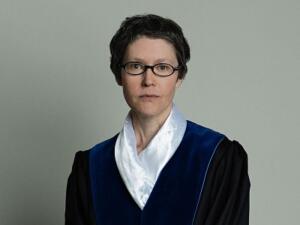UPC to hire multiple new judges in 2025
In 2025 the UPC will massively increase the number of judges, according to the court's recently published budget. The document also reveals the top earners at the UPC. The investment earmarked for the new CMS offers further interesting insights. And there is a detailed breakdown of how all this will be financed.
19 February 2025 by Christina Schulze
The UPC has published its budget for 2025 and it clearly states the number of judges at the UPC will grow significantly this year. Officials will make funds available for 6.9 full-time equivalent judges (FTEs) for the Court of Appeal alone. The budget for the court of first instance will increase from the current 34.6 FTEs to 47.3 FTEs. All additional judgeships are to be achieved in the course of the year both by hiring new judges and by increasing the working hours of existing part-time judges.
Expansion of judiciary
This process has already begun. According to JUVE Patent research, judge Tobias Pichlmaier has been working 100% at the UPC since February. Dirk Böttcher also joined the UPC full time this month. Recently, Jule Schumacher became the third judge at the Düsseldorf local division.
The number of technically qualified judges is set to rise from 75 to 115 this year. Their salaries are difficult to derive from the budget, as they are paid partly on a part-time basis and partly case-by-case.
Top earners

Klaus Grabinski
The net salaries of UPC judges start with a basic salary of just under €13,000 per month. This is a good offer for a judge who, for example, previously worked at the Munich Regional Court. They would not achieve such a basic salary at the latter, even after many years of service and with family allowances.
The top earner at the UPC is the President of the Court of Appeal with a net basic salary of €14,646 per month. This is well below the monthly basic salary of €16,321 for a member of the EPO Boards of Appeal. The basic salary of a judge at the German Federal Constitutional Court is at a similar level.
However, both the EPO and the UPC pay additional allowances. According to the 2025 budget, the President Court of Appeal Klaus Grabinski will receive a gross annual salary of €289,419 for 2025, which is 80% of what a German Federal Chancellor received last year with allowances.
The second highest paid is Registrar Alexander Ramsay with €278,747. In third place is the President Court of First Instance Florence Butin with €261,612 gross salary and allowances.
Member states must dig deeper

Florence Butin
Overall, the plan estimates a total budget of €30,344,347 for 2025. As expected, almost 60% of this will finance staff, especially judges. It is interesting to note that, according to the calculation, court fees will only cover 34% of the costs. This means the member states will have to dig much deeper into their pockets than last year to finance the further development of the UPC.
Additional costs will arise for taxpayers in the member states, not only due to the increase in workforce, but also for the IT infrastructure. The UPC’s new CMS should be available by the summer. The budget forecasts a total cost of €1,256,600. This money will finance a new CMS and improve the IT solutions for the management of finance and human resources, such as new tools for analytics and reporting.
When asked by JUVE Patent, a UPC spokesperson confirmed that the member states had already approved the budget.
No increase in court fees

Alexander Ramsey
The distribution of costs among the member states is based on the contribution key (PC/02/041114). Germany is the largest contributor with 42.82%. In concrete figures, this means that Germany will transfer a total of €7,231,055 to the UPC this year.
The second most important contributor is Italy with a share of 17.44%, or just under three million euros. Another important contributor is France with just under two and a half million euros. The Dutch government will transfer just over one million euros. All other member states will contribute a significantly smaller sum.
What is striking about the plans for the coming years is that no provisions are made in the budget for an increase in income from court fees. At the same time, however, the budget for 2026 is set to jump to over €30 million — more than a third of which is earmarked for rising HR expenses. The budget also foresees a significant increase in the years to follow; the outlook rises to forty-two and a half million euros in 2029.
Costs for PMAC
The budget also reveals the costs for the new Patent Arbitration and Mediation Centre for the first time. The centre’s director, Aleš Zalar, a former judge and president of the District Court of Ljubljana, earns €148,833 as gross salary with allowances. The court will expand the current staff of one secretary in addition to the director by a further secretary and two case managers this year.
The budget also breaks down the costs for training in detail. A total of €618,415 is available for training UPC judges and staff. Almost half of this will finance the three-day symposium at which all legally and technically qualified judges come together once a year. (Co-author: Mathieu Klos)
